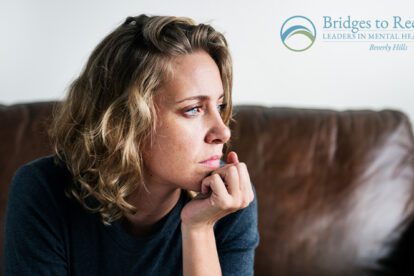Everything You Need to Know about Depression and Treatment Centers

While everyone feels sad from time to time, it’s important to understand the difference between being sad and being depressed.
Depression is a medical condition diagnosed when an individual is suffering from particular symptoms. While some battle with occasional, short-lived depression, others struggle with chronic depression for years.
When dealing with the latter, it’s important to remember there is help in the form of depression treatment centers.
The Signs of Depression
Because depression is a legitimate mental disorder, symptoms can vary between individuals. Much is dependent on the personal, social, and emotional makeup of the person. However, according to the official DSM-5 mental disorder manual, depression is diagnosed when at least five of these symptoms are simultaneously present:
- A prolonged feeling of helplessness or worthlessness
- Depression that lasts all day, but is worse in the morning
- Loss of appetite and energy
- Inability to fully concentrate
- Insomnia or hypersomnia
- Lack of interest in favorite activities and hobbies
- Thoughts of death or suicide
- Significant weight loss or gain
Others symptoms may be more physical in nature and include headaches or digestion issues. Regardless of which signs are present, depression can be particularly debilitating and severely limiting.
Is Someone You Love Suffering From Depression?
Bridges to Recovery is a Safe Alternative to a Hospital Environment
Types of Depression
As the symptoms can vary from individual to individual, so can the types of depression. Here are a few of the most common categories:
- Major Depression. Arguably the most serious of all types, major depression is actually quite prevalent in the United States. Studies suggest around 7 percent of the adult population suffers from this form of depression, which tends to reoccur and linger in a person’s life.
- Melancholic Depression. This subtype of major depression usually involves feeling excessively guilty, waking up early, and losing weight.
- Atypical Depression. This form of depression usually involves interpersonal rejection in which the individual wants to avoid social activities, eat, and sleep.
- Post-Partum Depression. According to research, up to 16 percent of women experience serious post-partum depression after giving birth. This usually plays out in the form of extreme sadness and hopelessness.
- And More. In addition to these forms of depression, there are countless others. Individuals can suffer from seasonal depression, dysthymia, minor depression, adjustment disorders, and more.
Treatment Centers for Depression
When depression invades, it’s important to get help. While it may not seem like it, almost all depression is treatable. Treatment centers for depression do a great job of allowing individuals to recover using proven treatment plans and careful attention to detail. At a treatment center, you can expect compassionate, caring assistance in your battle with depression. Most depression treatment centers use a combination of psychotherapy and medication to alleviate symptoms and discover the root of the problem.
Getting the Help You Need
If you or a loved one is suffering from depression, a professional treatment center may be exactly what you need. At Bridges to Recovery, we offer an intensive, yet compassionate, treatment approach to depression. By attending to the physical, mental, and spiritual functioning of patients, we have been able to help many individuals conquer depression and regain their lives. Contact us today for more information.






